Reviews
The book's epigraph is from Christopher Hitchens, to whom the book is also dedicated:
There is an all-out confrontation between the ironic and the literal mind: between every kind of commissar and inquisitor and bureaucrat and those who know that, whatever the role of social and political forces, idea and books have to be formulated and written by individuals.
The terror of knowing certain truths, and the desire for ignorance, is a central human passion, writes Hanif Kureishi in his review of Cohen's book: "people don't want to hear themselves, let alone anyone else. The truth can be so disconcerting that any lie is preferable. Therefore the possibility of another view of things is ruled out by political systems, corporations, authorities, bankers, parents and powermongers of all types." [3]
Robert Bradley wrote, in the Huffington Post, that the most interesting point is that "the moment you enter your place of work, you no longer reside within a governed democracy, but instead are enslaved to a systematic dictatorship that tells you when to eat, where to piss and what clothes to wear. Woe betide if you dare blow the whistle on their 'business practices'! The secret police faction, known lovingly as 'Human Resources', will have you bagged, sacked and broke quicker than the overweight security guard can throw your 'unorthodox ass' out of the building!" [4] Beginning with the case of Ayaan Hirsi Ali, Cohen presents an overview of censorship issues, commenting on numerous important incidents: the Danish cartoons; Simon Singh; Julian Assange; the libel laws, as well as new forms of ingenuity, when it comes to truth-telling, such as Twitter. Hanif Kureishi writes that the "arguments Cohen describes so vividly are necessary and important to hear, as is the fact that the tension between suppression and freedom will never end. It is not as if one day everything will be settled. What is crucial is that the quarrel is not closed; and to see that closing quarrels is what lifeless ideologies do: they behave as though only one view of the world was possible, as if it was credible to kill the imagination, and that other versions of reality are inconceivable." [3]
Civil liberties in the United States are certain unalienable rights retained by citizens of the United States under the Constitution of the United States, as interpreted and clarified by the Supreme Court of the United States and lower federal courts. Civil liberties are simply defined as individual legal and constitutional protections from entities more powerful than an individual, for example, parts of the government, other individuals, or corporations. The explicitly defined liberties make up the Bill of Rights, including freedom of speech, the right to bear arms, and the right to privacy. There are also many liberties of people not defined in the Constitution, as stated in the Ninth Amendment: The enumeration in the Constitution, of certain rights, shall not be construed to deny or disparage others retained by the people.

Peter Jonathan Hitchens is an English conservative author, broadcaster, journalist, and commentator. He writes for The Mail on Sunday and was a foreign correspondent reporting from both Moscow and Washington, D.C. Peter Hitchens has contributed to The Spectator, The American Conservative, The Guardian, First Things, Prospect, and the New Statesman. His books include The Abolition of Britain, The Rage Against God, The War We Never Fought and The Phoney Victory.
Center for Democracy & Technology (CDT) is a Washington, D.C.-based 501(c)(3) nonprofit organisation that advocates for digital rights and freedom of expression. CDT seeks to promote legislation that enables individuals to use the internet for purposes of well-intent, while at the same time reducing its potential for harm. It advocates for transparency, accountability, and limiting the collection of personal information.

Hanif Kureishi is a British Pakistani playwright, screenwriter, filmmaker, and novelist. He is known for his film My Beautiful Laundrette and novel The Buddha of Suburbia.

Nicholas Cohen is a British journalist, author and political commentator. He was a columnist for The Observer, and is one for The Spectator. Following accusations of sexual harassment, he left The Observer in 2022 and began publishing on the Substack platform.
"Shouting fire in a crowded theater" is a popular analogy for speech or actions whose principal purpose is to create panic, and in particular for speech or actions which may for that reason be thought to be outside the scope of free speech protections. The phrase is a paraphrasing of a dictum, or non-binding statement, from Justice Oliver Wendell Holmes Jr.'s opinion in the United States Supreme Court case Schenck v. United States in 1919, which held that the defendant's speech in opposition to the draft during World War I was not protected free speech under the First Amendment of the United States Constitution. The case was later partially overturned by Brandenburg v. Ohio in 1969, which limited the scope of banned speech to that directed to and likely to incite imminent lawless action.
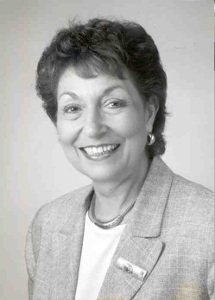
Judith Fingeret Krug was an American librarian, freedom of speech proponent, and critic of censorship. Krug became director of the Office for Intellectual Freedom at the American Library Association in 1967. In 1969, she joined the Freedom to Read Foundation as its executive director. Krug co-founded Banned Books Week in 1982.

Internet censorship is the legal control or suppression of what can be accessed, published, or viewed on the Internet. Censorship is most often applied to specific internet domains but exceptionally may extend to all Internet resources located outside the jurisdiction of the censoring state. Internet censorship may also put restrictions on what information can be made internet accessible. Organizations providing internet access – such as schools and libraries – may choose to preclude access to material that they consider undesirable, offensive, age-inappropriate or even illegal, and regard this as ethical behavior rather than censorship. Individuals and organizations may engage in self-censorship of material they publish, for moral, religious, or business reasons, to conform to societal norms, political views, due to intimidation, or out of fear of legal or other consequences.
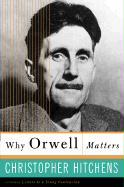
Why Orwell Matters, released in the UK as Orwell's Victory, is a book-length biographical essay by Christopher Hitchens. In it, the author relates George Orwell's thoughts on and actions in relation to: The British Empire, the Left, the Right, the United States of America, English conventions, feminism, and his controversial list for the British Foreign Office.
Darian Leader is a British psychoanalyst and author.

Freedom of speech is a principle that supports the freedom of an individual or a community to articulate their opinions and ideas without fear of retaliation, censorship, or legal sanction. The right to freedom of expression has been recognised as a human right in the Universal Declaration of Human Rights and international human rights law by the United Nations. Many countries have constitutional law that protects free speech. Terms like free speech, freedom of speech, and freedom of expression are used interchangeably in political discourse. However, in a legal sense, the freedom of expression includes any activity of seeking, receiving, and imparting information or ideas, regardless of the medium used.

Cyber Rights: Defending Free Speech in the Digital Age is a non-fiction book about cyberlaw, written by free speech lawyer Mike Godwin. It was first published in 1998 by Times Books. It was republished in 2003 as a revised edition by The MIT Press. Godwin graduated from the University of Texas School of Law in 1990 and was the first staff counsel for the Electronic Frontier Foundation. Written with a first-person perspective, Cyber Rights offers a background in the legal issues and history pertaining to free speech on the Internet. It documents the author's experiences in defending free speech online, and puts forth the thesis that "the remedy for the abuse of free speech is more speech". Godwin emphasizes that decisions made about the expression of ideas on the Internet affect freedom of speech in other media as well, as granted by the First Amendment to the United States Constitution.
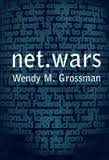
Net.wars is a non-fiction book by journalist Wendy M. Grossman about conflict and controversy among stakeholders on the Internet. It was published by NYU Press in 1997, and was simultaneously made available free as an online version. The book discusses conflicts which arose during the growth of the Internet from 1993 through 1997, labeled by Grossman as "boundary disputes". These disputes deal with issues including privacy, encryption, copyright, censorship, sex, and pornography. The author discusses history of organizations in their attempts to enforce their intellectual property on the Internet, against individuals who attempted to reveal confidential materials asserting it was in the public interest. Grossman frames these disputes with respect to overarching rights of freedom of speech and the First Amendment to the United States Constitution.

The Best American Magazine Writing 2007 is a non-fiction book published by Columbia University Press, and edited by the American Society of Magazine Editors. It features recognized high-quality journalism pieces from the previous year. The book includes an account by journalist William Langewiesche of Vanity Fair about a controversial United States military operation in Iraq, an investigative journalism article for Rolling Stone by Janet Reitman, a piece published in Esquire by C.J. Chivers about the Beslan school hostage crisis, and an article by Christopher Hitchens about survivors of Agent Orange.
Intellectual freedom encompasses the freedom to hold, receive and disseminate ideas without restriction. Viewed as an integral component of a democratic society, intellectual freedom protects an individual's right to access, explore, consider, and express ideas and information as the basis for a self-governing, well-informed citizenry. Intellectual freedom comprises the bedrock for freedoms of expression, speech, and the press and relates to freedoms of information and the right to privacy.
Time, Inc. v. Hill, 385 U.S. 374 (1967), is a United States Supreme Court case involving issues of privacy in balance with the First Amendment to the United States Constitution and principles of freedom of speech. The Court held 6–3 that the latter requires that merely negligent intrusions into the former by the media not be civilly actionable. It expanded that principle from its landmark defamation holding in New York Times v. Sullivan.
Book censorship is the removal, suppression, or restricted circulation of literary, artistic, or educational material on the grounds that it is objectionable according to the standards applied by the censor. The first instance of book censorship in what is now known as the United States, took place in 1637 in modern-day Quincy, Massachusetts. While specific titles caused bouts of book censorship, with Uncle Tom’s Cabin frequently cited as the first book subject to a national ban, censorship of reading materials and their distribution remained sporadic in the United States until the Comstock Laws in 1873. It was in the early 20th century that book censorship became a more common practice and source of public debate. Throughout the 20th and early 21st centuries there have been waves of attempts at widespread book censorship in the US. Since 2022, the country has seen a dramatic increase of attempted and successful censorship, with a 63% rise in reported cases between 2022 and 2023, including a substantial rise in challenges filed to hundreds of books at a time. In recent years, about three-fourths of books subject to censorship in the US are for children, pre-teenagers, and teenagers.

No One Left to Lie To: The Triangulations of William Jefferson Clinton is a 1999 book about President of the United States Bill Clinton by author and journalist Christopher Hitchens. It was first published in hardback by the New Left Review imprint, Verso Books.
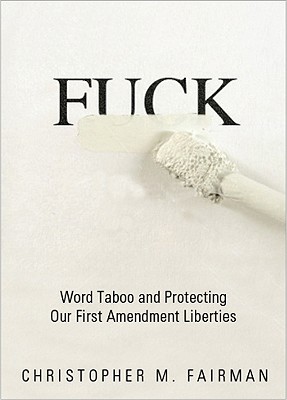
Fuck: Word Taboo and Protecting Our First Amendment Liberties is a nonfiction book by law professor Christopher M. Fairman about freedom of speech, the First Amendment to the United States Constitution, censorship, and use of the word fuck in society. The book was first published in 2009 by Sphinx as a follow-up on the author's article "Fuck", published in 2007 in the Cardozo Law Review. It cites studies from academics in social science, psychoanalysis, and linguistics. Fairman establishes that most current usages of the word have connotations distinct from its meaning of sexual intercourse. The book discusses the efforts of conservatives in the United States to censor the word from common parlance. The author says that legal precedent regarding its use is unclear because of contradictory court decisions. Fairman argues that once citizens allow the government to restrict the use of specific words, this will infringe upon freedom of thought.
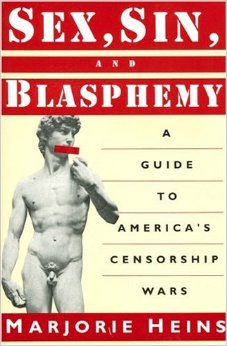
Sex, Sin, and Blasphemy: A Guide to America's Censorship Wars is a non-fiction book by lawyer and civil libertarian Marjorie Heins that is about freedom of speech and the censorship of works of art in the early 1990s by the U.S. government. The book was published in 1993 by The New Press. Heins provides an overview of the history of censorship, including the 1873 Comstock laws, and then moves on to more topical case studies of attempts at suppression of free expression.













